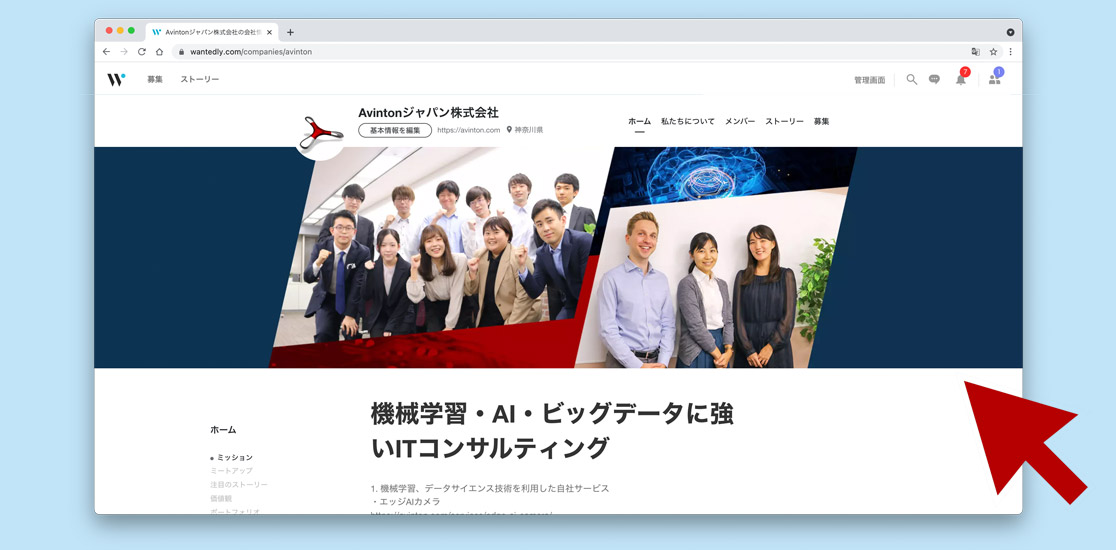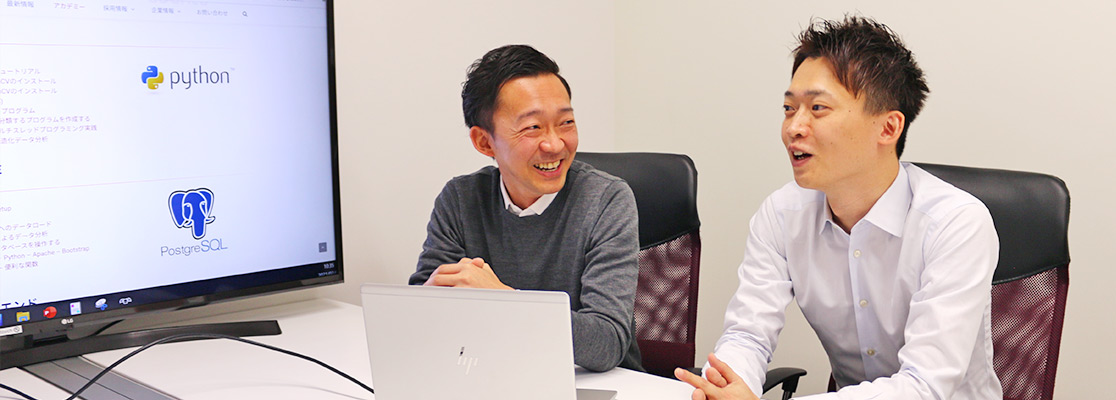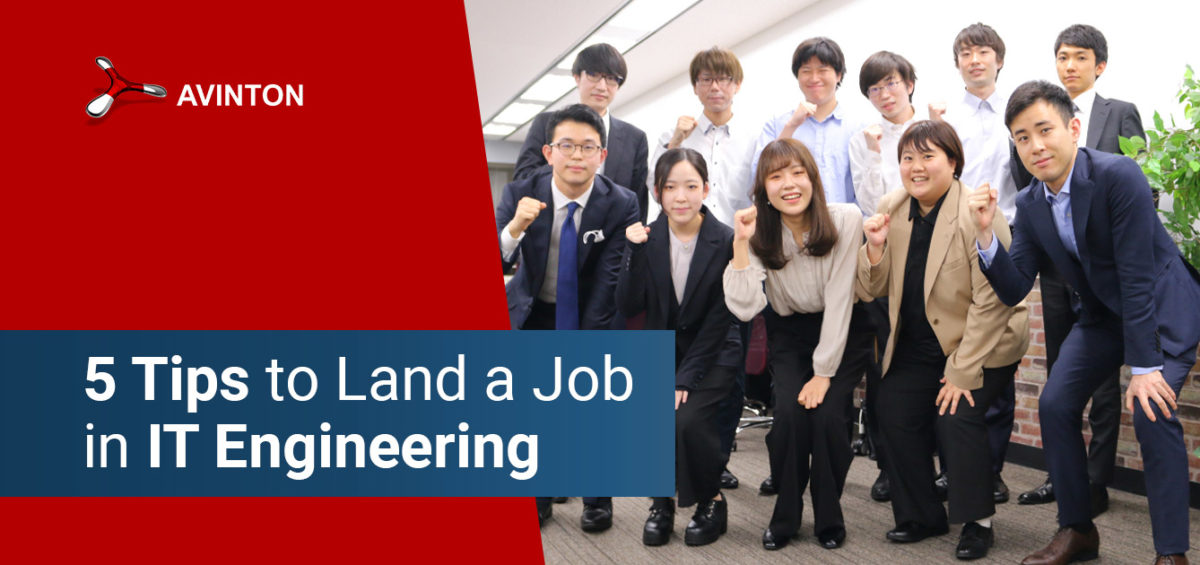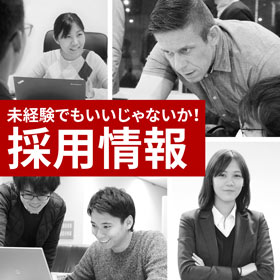Table of Contents
As more and more industries tap the potential of AI and Big Data to drive innovation, the demand for skilled IT engineers is increasing rapidly. In this article, we collected five tips to improve your chances of landing your first job or boosting your career in the IT industry. Find out how to reach your full potential in order to build a future-proof career in IT engineering.
IT engineers are in high demand across multiple industries around the world, presenting great career opportunities for both experienced and inexperienced talents. With more and more areas of life being intertwined with digital technologies, the economic power of a nation will strongly depend on whether or not this demand can be met. As the market is expanding rapidly, we notice a dramatically increasing lack of engineers in Japan.
Information technologies are omnipresent in our society, yet IT engineering remains a mystery to many. It is true that the field of IT engineering is very broad – ranging from applications and system software development (which includes programming) to hardware engineering (which is designing physical products). This is why the IT sector offers such vast and attractive career opportunities for different types of people with diverse personality traits, educational backgrounds, and skills.
The deployment of Artificial Intelligence (AI) and Big Data does not reduce the need for IT engineers – in fact, emerging technologies are the very reason for this rapidly growing need for skilled talents.
At Avinton, we not only work with experienced engineers but also train inexperienced candidates. Our diverse members are able to develop innovative solutions based on AI and Big Data for our international clients while building secure and well-paid careers for themselves.
Having trained hundreds of new graduates and cross-industry career jumpers, we are going to share our advice on how to land a job in IT engineering. Find out what it takes to acquire a flexible skill set in order to stay successful and competitive in the future.
Tip 1: Choose Your IT Engineering Discipline Based On Your Strengths
System engineers, infrastructure engineers, data scientists … the field of IT engineering is wide and diverse, and so are the career opportunities. You are likely to find a specialization in IT that matches your personal strengths and interests.
For example, being good at mathematics and logic are essential features of programmers. Technical coordinators, help desk technicians and project coordinators, on the other side, require strong communication and organizational skills. After all, they need to be able to understand and explain complex scenarios to technical and non-technical members or clients.
No matter the specific discipline, successful IT engineers share their passion for the latest technology, and for solving problems through analytic methods and creativity.
A career in IT engineering is for ambitious talents who don’t want to be stuck in a daily routine of doing the same processes over and over again. As new technologies are constantly emerging, the challenges within corporations and our society are changing accordingly. Therefore, it is necessary for engineers to always keep learning, stay curious, and pay attention to detail. The life of an engineer never gets boring – read more about it in our employee interview.

Tip 2: Get the Necessary Education in IT
Starting a career in IT engineering not only requires commitment but also relevant education in the field. While experienced engineers can be deployed to a client project very quickly, new graduates and career jumpers working at Avinton will have to undergo a phase of in-house training as part of Avinton Academy combined with diligent self-study.
Generally speaking, getting a basic understanding of Linux and how programs work is an essential part of becoming an IT engineer, and a programmer in particular. The knowledge of Linux is a core requirement for our front-end, back-end, network, infrastructure, and data engineer positions. We recommend inexperienced candidates, who are eager to learn, to browse through public IT engineering job descriptions to get a better understanding of the most sought-after requirements in the market.
As the IT sector relies heavily on international technologies and networking, gaining some knowledge of the English language is becoming more important than ever. Being fluent in English not only allows you to read and study the latest tech literature from abroad but makes you an attractive candidate for the international job market. As our work atmosphere is very modern and international, there are many opportunities to speak English.
It is also strongly recommended to acquire relevant IT certifications (such as CCNA and LPIC) as proof of your learning progress. At Avinton, we provide study material, exam fee support, a mentoring system through senior engineers, and we help our members design a future-proof career plan.

Tip 3: Search The Right Channels for Jobs in IT Engineering
When newly graduating or considering a career change, it is important to tap the right sources for finding available IT engineering jobs. While the demand for engineers is generally high, it might be especially difficult for inexperienced candidates to find the right stepping stone.
When diving into the job search, you might perform a simple web search like “Inexperienced engineer jobs in IT” or “IT engineer job change”. And perhaps this is the reason you found this article. This is a perfectly fine initial approach that will help you get an idea of the players and trends on the market, and what the most common skill requirements are.
Web platforms like Wantedly and Linkedin have evolved from being recruiting websites to being the major social networks for the professional sphere. Alongside sharing their latest job openings, a growing number of companies are providing insight into their company culture and work atmosphere like never before. At the same time, users can build their own professional network, stay alert on the latest career opportunities, and be found by recruiters.
At specific job fairs, both educational institutes and companies present their training and career opportunities. Individuals who are seeking to work in IT get a valuable chance to directly interact with representatives from various companies, ask questions and schedule follow-up meetings.
At Avinton, we are constantly growing our team and looking for both inexperienced and experienced IT engineers, IT project managers, and business operations staff. Please feel free to browse our current job openings but also consider joining our recurring recruit meetup to get to know us in a casual atmosphere.
Tip 4: Create a Convincing Engineering Job Application
Once you have found an interesting job post, be aware that you don’t have to satisfy every single requirement or meet every qualification listed. Think of these rather as guidelines, not as hard rules. Typically, the most important requirements are prioritized. If you have other transferable skills and roughly meet the number of years of experience the company is looking for, then do not hesitate to apply.
In IT engineering, learning never ends. It is important that you are aware of the skills you already have, but even more so, the ones you are currently lacking. Recognize any lack of knowledge, be honest about it, and propose a plan for how you are going to work on it. As new technologies emerge and the industry evolves rapidly, your willingness to acquire new skills is a feature that companies will greatly appreciate.
At Avinton, we value skills over formalities. We try to make the job application process as smooth as possible for our candidates. Therefore, the application form consists of only a few questions about your desired field of work and existing qualifications.
A well-designed resume does not convince recruiters by having a fancy color scheme, but rather by having a clean layout. Make sure to structure your resume in a way that your education, skills, and previous experience stand out and are easy to understand.
If a cover letter is requested, highlight your personal motivation to work in the IT industry and for that specific company, as well as your willingness to keep learning.

Tip 5: Prepare Well for the Job Interview
If you are invited to a job interview, your application must have sparked the company’s interest. The interview is your chance to introduce yourself in person, and to move further along the recruiting process. So, how can you make a great impression?
First off, make sure to research the industry and company. The interviewer might ask you how you perceive the company’s position in the industry and how it should best go forward. Next, get a clear image of your own “selling points”, such as what makes you the best candidate for the position and why you want the job. Ideally, in the interview, you can reference the career path opportunities and rewards the company offers that you find valuable.
Prepare a list of common interview questions you are likely to encounter and elaborate your answers (“Could you tell me a little bit about yourself?”, “What are your strengths and weaknesses?”, “Where do you see yourself in five years?”). Make sure to memorize them well, but speak freely during the interview.
However, it’s important to not only have good answers but to also prepare good questions that you want to ask. At some point, the interviewer is likely to ask you if you have any more questions. When asked, never reply “no”. This is your chance to leave a great impression by showing your true interest in this IT engineering position. Even more importantly, thought-out questions help you get a better understanding of the tasks so you can better evaluate whether you are going to enjoy working for this company.
When interviewing for a job in IT engineering, you could ask the interviewer: “What’s the size of the team I will be working in?”, “What does the introductory training look like?”, “Which challenges will I face within the first 90 days?” or “How would you describe the company culture?”. Make sure your questions are closely related to the actual tasks and work atmosphere, rather than about salary specifics or general questions that can easily be researched on the website.
During the interview, additional questions might come up. Take a note of them, and when asked if you have any further questions, you can comment on those open points. Not only will you get answers to your questions, but that way you are indicating that you paid attention during the entire meeting.
Pay attention to formalities, as well. Generally, a job interview calls for you to wear business attire. Prepare your clothes the day before and leave your home early so that you don’t have to rush and look stressed. If the job interview is online, test the equipment (like your webcam and microphone) beforehand with a friend. Especially when applying for an IT project management or sales position, professional appearance is very important. So, your best bet would be to familiarize yourself with business etiquette and greeting manners before attending the job interview.

IT Engineering Never Gets Boring
As more and more industries tap the potential of AI and Big Data technologies to drive innovation, the demand for skilled engineers is increasing dramatically. The career opportunities are broad – and so are the competencies that companies are looking for. Based on your personal strengths and interests, you will likely find a field within IT engineering that suits you – ranging from data science and infrastructure engineering to help desk support and IT project management.
If you are eager to continuously improve your skills and work on challenging tasks, IT engineering is a rewarding field that never gets boring. At Avinton, we offer technical training while working on real-world problems with renowned customers. It is our motivation to train and provide highly skilled engineers to Japan’s economy while remaining true to our sustainable development goals.
We hope that our five tips on landing a job in IT engineering can be a helpful resource on your way to accelerating your career in IT – we wish you all the best! If you have any questions or feedback regarding this article, do not hesitate to contact us.
Please feel free to browse through our open IT engineering job positions or sign up to join our informative recruiting event, and consider joining our diverse and international team.
Together with us, we will elaborate your personal career plan to help you ensure a successful future in IT engineering. We promise you that, at Avinton, your workday will never get boring.




